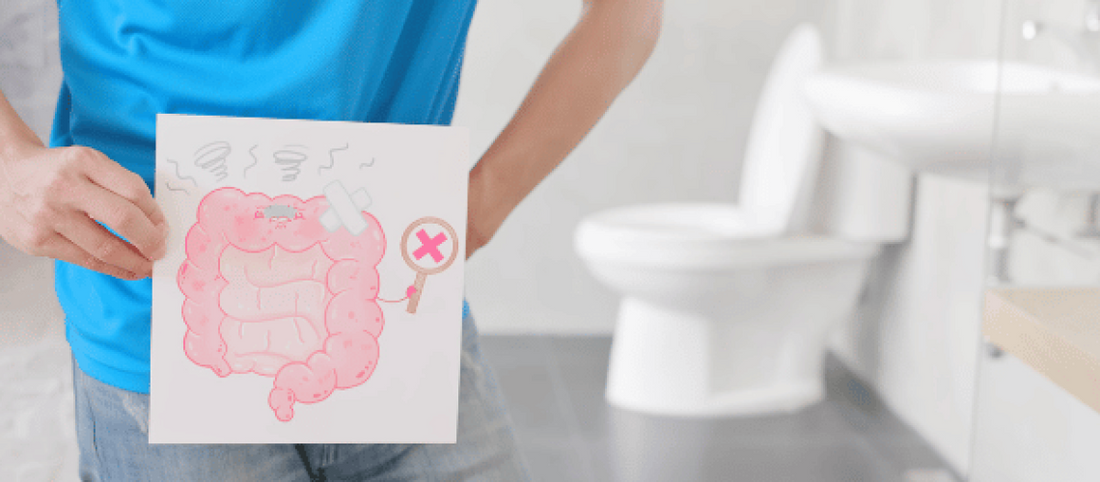Constipation can be very common, and it's not a symptom we should ignore.
What is constipation?
Constipation is the passing of hard, dry bowel motions (stools) that may be infrequent or difficult to pass.
Common Symptoms of constipation include:
→ needing to pass bowel movements less often than usual
→ hard, dry stools that may be painful to pass
→ straining to pass the bowel movement
→ having to sit on the toilet for much longer than usual
→ the sensation afterwards that the bowel hasn’t fully emptied
→ bloated abdomen
→ abdominal cramps
What Causes Constipation?
Lifestyle-related causes of constipation can be caused by many different factors that often work in combination, including:
→ A CHANGE IN ROUTINE
Normal bowel motions depend on the regular and rhythmic contraction of the bowels. This is part of the body’s internal ‘clock’ and can be disrupted with changes in routine.
→ LOW-FIBRE DIET
Fibre is important for adding bulk to bowel motions, making it easier to traverse along the digestive tract. There are two broad types of fibre; soluble and insoluble.
Soluble fibre helps to soften the faeces. Good sources of soluble fibre include legumes, fruits and vegetables. Insoluble fibre adds bulk to the faeces, helping it to move more quickly through the bowel.
Also worth noting that sufficient water (hydration) is necessary for fibre to assist moving faeces out of the bowels. Constipation can occur from a high-fibre diet if insufficient water is consumed.
→ LACK OF REGULAR EXERCISE
Living a sedentary lifestyle or being restricted in movement due to a disability can be common causes of constipation.
→ PUTTING OFF GOING TO THE TOILET
Ignoring the urge to go means that more water will be reabsorbed from the stool over time, making them hard, and more difficult to pass. Regularly ignoring this urge may make the body less sensitive to normal signals to go to the toilet.
→ MEDICATIONS
Some medications such as narcotics (particularly codeine), antidepressants, iron supplements, calcium-channel blockers (antihypertensive) and non-magnesium antacids are known to slow bowel movements, clogging up the bowels.
→ PREGNANCY
The action of hormones, reduced activity and the pressure of the growing uterus against the intestines mean that constipation can be common during pregnancy.
→ ADVANCING AGE
Constipation tends to be more common in the elderly. This is due to a number of factors, including reduced intestinal muscle contractility and reliance on regular medications.
→ ILLNESS
A period of illness, particularly an illness resulting in hospitalisation and bed-rest, typically results in constipation. Factors include change in routine, shyness or being uncomfortable, reduced food intake, pain (especially after abdominal surgery), and pain-relief medication such as morphine.
How Can We Improve Constipation?
- Recognising and lowering our stress levels
- Ensuring we are maintaining adequate daily hydration
- Paying attention to medications that may contribute to worsening constipation
- Getting regular physical exercise
- Gut Repair can assist with maintaining bowel regularity to address constipation with its signature blend of high quality fibres, prebiotics, probiotics, digestive enzymes and healing & soothing herbs and nutrients.
